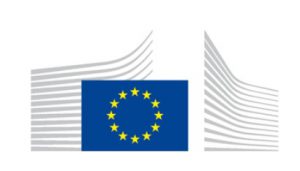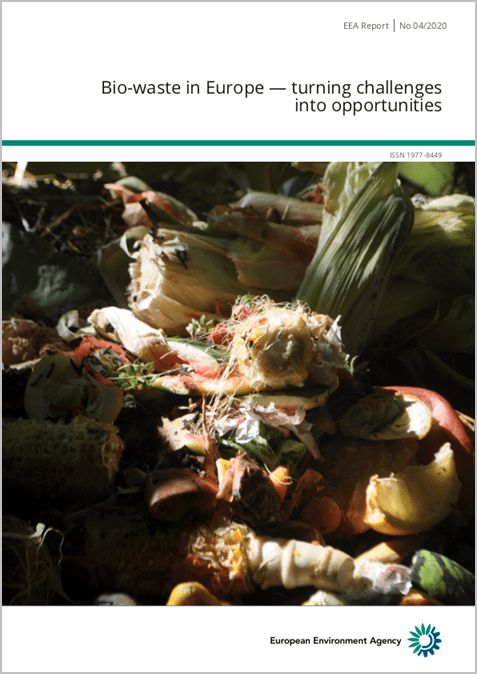|
Council of the European Union
The Federal Republic of Germany will hold the Presidency of the Council of the European Union from July to December 2020

The German Presidency's programme with their priorities on climate policy, biodiversity, the circular economy and the common agricultural policy is available online and can be downloaded from the website.
On 1 July 2020, the German Presidency of the Council of the European Union took office in Brussels. The German programme sets out the priorities for the next six months, is published in several languages and is available online in the German Presidency's website.
The program lists all priorities in more than 20 pages. Among the most ambitious objectives, the German Presidency is required to approve and adopt the financial economic instruments to help Member States reconstitute economic and social activities, weakened by the COVID-19 crisis. Known as the EU Recovery Fund "Next Generation EU", the fund should disburse grants and loans to give a new input to the economy.
Ministers of the Federal Republic of Germany
- Will talk with Member States’ Ministers to approve some binding policy recommendations to be forwarded to the European Commission. The recommendations will cover the Action Plan for the Circus Economy, The Biodiversity Strategy and the Fork Farm Strategy,
- Will start negotiating the 8th environmental action programme,
- Will vote on the Commission's proposal on Climate Law and discuss with the Member States’ Ministers how to reduce greenhouse gas emissions by 2030,
- Will act through international diplomacy so that all countries adopt goals and targets to prevent, mitigate and adapt to climate change.
The German Presidency will continue to lead negotiations to reform the Common Agricultural Policy by seeking to give more responsibility to Member States in planning and ensuring the development of their rural areas.

Common Agricultural Policy
Lawmakers agreed to delay post-2020 CAP by two years
Former Croatian Presidency managed to reach the final agreement on the Common Agricultural Policy (CAP)’s transitional regulations on the last day of their office.
Member States’ negotiators and the MEPs have informally developed a common understanding on a two-year period where current CAP rules will apply. Meaning that the payments under the next Common Agricultural Policy’s rules will not start before 2023. Transitional law will ensure the continuation of direct payments, as well as the funding of new projects in the rural development programme.
Elsi Katainen, Finnish MEP from Renew Europe was rapporteur for the European Parliament on the file and she played a major role in striking the compromise.
Negotiations on the revision of the CAP go hand in hand with the discussions on the next EU budget – i.e. Multiannual Financial Framework 2021-2027.

European Commission
Methane Emissions (EU Strategic Plan): Commission Publishes Roadmap
The Commission has highlighted the main areas on which the upcoming EU methane emissions Strategy will focus on in the agriculture, energy and waste sectors.
The Commission published a Roadmap for the expected EU Strategy on methane emissions on 8 July 2020. A four-week public consultation on the Roadmap is open for feedback until 5 August.
The Roadmap notes, the Commission is working on an integrated strategy covering the energy, agriculture and waste sectors, to tackle methane emissions and explore potential synergies between the sectors. For the energy sector, improving actual measurement, reporting and verification of emissions is needed. For agriculture, accurate monitoring, verifying and reporting is more challenging, and requires clear methodologies to capture any mitigation efforts correctly. Finally, for the waste sector, the main source of methane emissions are uncontrolled emissions of landfill gas in landfill sites.
The Roadmap notes some of the potential areas of focus of the Strategy would be to outline ways to achieve better measurement and reporting of methane emissions at private and sectoral entity level in the EU (ahead of designing new policies to curb emissions). It will also consider sector-specific actions to reduce emissions, to contribute to cleaner air and to improve the collection of methane in agriculture and waste for potential use as a source of energy.
The Commission is expected to come forward with a Strategy for methane emissions by the end of the third quarter of 2020.

European Commission
The European Commission launches the 1st call for proposal of the European Innovation Fund
The European Innovation Fund will co-finance innovative renewable energy and low-carbon technology for the next 10 years
The European Innovation Fund has been formally adopted and established. The European Commission has also published the 1st call for proposal of 1 000 000 000 EUR to finance innovative projects on
- Innovative low-carbon technologies and processes in energy intensive industries, including products substituting carbon intensive ones,
- Construction and operation of carbon capture and storage (CCS).
- Construction and operation of innovative renewable energy generation and energy storage technology.
The first call for large-scale projects is open until 29 October 2020. However, this is a two-stage evaluation process and the deadline for the second phase is set for Second quarter 2021.
After the first selection/evaluation phase, 70 proposals will be shortlisted. Shortlisted projects will be evaluated by the Innovation and Networks Executive Agency (INEA) and by external evaluators. Shortlisted projects that get a score less then 7.5 (minimum threshold) will not receive funding.
Moreover, only projects above EUR 7 500 000 of capital expenditure (large-scale projects) shall be eligible for the Innovation Fund grants under the first call for proposals. The grants shall be awarded following a competitive selection process via the call for proposals. The maximum co-financing rate is 60 % of the relevant costs of projects, which shall be disbursed as grants in the form of lump sums.

EEA report 04_2020
Reducing and recycling food and garden waste to boost Europe's circular economy
 Bio-waste is one of the key waste streams in Europe and holds great potential for the circular economy. Bio-waste is one of the key waste streams in Europe and holds great potential for the circular economy.
According to the European Environment Agency’s new assessment, reducing and using bio-waste could cut emissions, improve soils and provide energy.
Recycling bio-waste is also key for meeting the European Union‘s target to recycle 65 % of municipal waste by 2035.
The new report of the European Environmental Agency can be downloaded here.

European Commission
Evaluation on the use of sewage sludge in farming
The European Commission has opened an evaluation on the use of sewage sludge in farming. Feedback is requested until 25th August 2020.
Adopted 30 years ago, the Directive no longer matches current needs and expectations, such as properly regulating pollutants found in sludge (‘emerging contaminants’ like pharmaceuticals and microplastics).This initiative will evaluate how effective the Directive has been and analyse the risks and opportunities related to sewage sludge management in farming.
The use of sludge in agriculture is an effective alternative for chemical fertilisers, especially phosphorus fertilisers. The importance of recycling of materials, in line with circular economy principles, is highlighted as a priority area under the European Green Deal and the Circular Economy Action Plan (CEAP). Transformation of the industry and all the value chains is required for Europe to be less dependent on the extraction of raw materials. However, it is important that what is used as a resource is not contaminated, otherwise recycling will result in increasing pollution of soil, water and/or air. This is also in line with the Commission's zero pollution ambition announced in the European Green Deal (a strategy is expected in 2021).
In the context of the evaluation the Commission is planning to launch on online public consultation in the fourth quarter of 2020 and a targeted stakeholder consultation is planned to be held in the third quarter of 2020 to gather information and collect views of stakeholders representing the key sectors and organisations concerned.
Members of ECN, who are interested in this topic, can join our Task Group ‘Biosolids’ by contacting the ECN office: info@compostnetwork.info. The TG ‘Biosolids’ is preparing a feedback on the evaluation and will follow up the revision process.
Further information on the evaluation and the roadmap can be accessed here.

Save the date - EP breakfast debate
Save Organics in Soil – Sustainable Agriculture in a Circular Economy
Hosted by MEP Franc Bogovič and MEP Elsi Katainen ECN is organising an EP breakfast debate on 'Save Organics in Soil - Sustainable Agriculture in a Circular Economy‘ in the European Parliament on 13 October 2020.
Further information will follow soon. Please save the date.
|